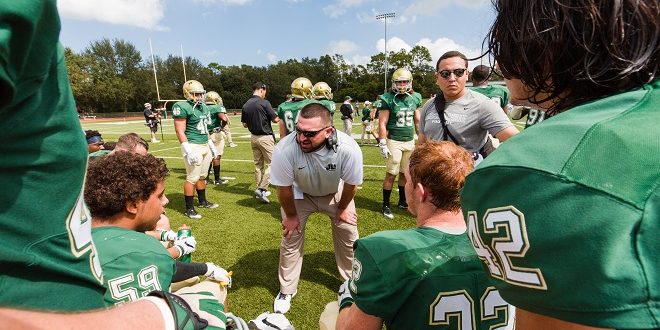By Dr. Don Capener
Are you trying to grow and protect a “nest egg” for retirement?
Don’t just play defense. Conventional wisdom in the world of finance says those nearing retirement should concentrate on defense when it comes to investments and leave risk-taking to younger investors.
My advice is: play more offense than defense, at any age. People are living and working well into their 60’s and 70’s, and past methods of how to transition into the last half of life are now antiquated.
Play more offense than defense, at any age.
With your retirement investment strategy, be prudent, but avoid making decisions out of fear. The same is true with career choices. Don’t wait to make a difference. Take calculated risks, learning new technologies, and either mentor someone else or seek out a mentor. Make efforts to improve your company, your colleague’s experiences, and of course, invest in yourself.
Ask what risks make sense for you. Though not a financial planner, I choose not to hold a majority of my investments in cash or certificates of deposit (CD’s). That’s playing defense one hundred percent.
In the case of a catastrophic drop in business or income, it still makes sense to balance investments between cash savings (remember to supplement the “rainy day fund”), bonds, and equities. Primarily this balanced portfolio is a smart approach because predicting the timing of an uptick or gauging when the economy will hit the floor after a major correction is difficult to do. History teaches us that time counteracts or smooths out investment risks, even after a major shift downward.
The Don’ts
Let’s talk about what not to do when you start moving further down the field of life.
In the 1985 film Lost in America, Albert Brooks and his wife (played by actress Julie Hagerty) quit their jobs and buy an RV. Buying an expensive RV isn’t necessarily reckless abandon, but it isn’t the greatest investment either. Cars, boats, and RV’s don’t appreciate in value and are what economists call consumption purchases. These investments depreciate quickly in value. In the movie, Brook’s wife proceeds to gamble away the couple’s retirement savings during their first RV trip to Las Vegas after Brooks leaves his job. The classic moment in the movie is when she admits that she gambled away the couple’s nest egg.
Reckless abandon is quitting a job before having a plan in place. Gambling on a big payoff in Las Vegas or an investment that is supposedly a “sure thing” is the definition of reckless. Check out the movie if you want a good laugh.
So, what is the alternative to reckless abandon to fund your retirement?
The Do’s
Here’s the play I recommend…
- Be aggressive and leverage marketable skills. Monetize your advantages when possible.
- Don’t make investment decisions based solely on bad outcomes or what might happen.
- But don’t believe investment advisors that say a certain investment is without “downside” risks or opportunity costs. There are always trade-offs to consider.
- Work hard and save enough to be able to afford your dream job in your 60’s. rather than the job that pays the most.
Before stepping into the world of academia, I helped credit card issuers motivate customers to purchase more by using revolving credit. Now, I have the opportunity to help and mentor students, and I’m happier than ever. Knowing at the end of each day that I could help someone better their life or future career is what I consider a win. My hope is that you’ll find greater balance in your career and win by employing both great offense and defense.

MARKET LIFE is a recurring feature in WAVE, a dedicated news source at Jacksonville University. E-mail commentary and questions about market and money matters to Dr. Don Capener, Dean of the Davis College of Business at Jacksonville University, at dcapene@ju.edu. Or read the latest from Dean Capener’s desk on LinkedIn.
 Wave Magazine Online Jacksonville University News Hub
Wave Magazine Online Jacksonville University News Hub
